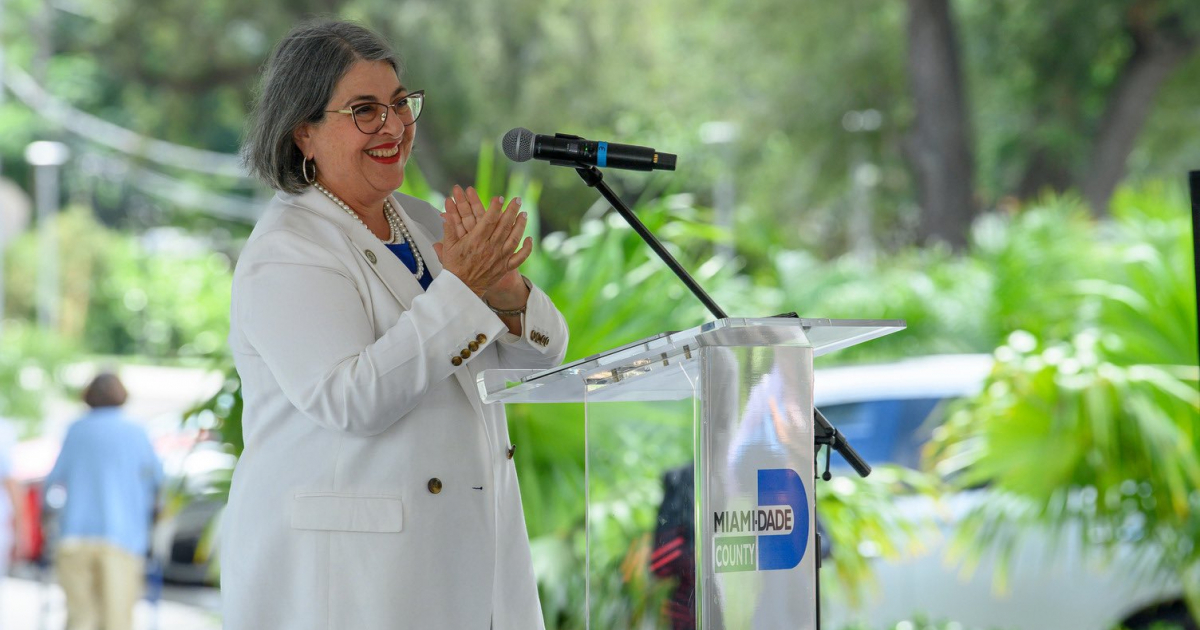
The mayor of Miami Dade,Daniella Levine Cava requested the retroactive granting ofhumanitarian paroles for Cuban immigrants in legal limbo, which would allow them to update their respective immigration statuses under the protection of theCuban Adjustment Law.
In a letter addressed toAlexander Mayorkas, Secretary of Homeland Security of the United States, Levine Cava urged him to allow authorities to retroactively issue a humanitarian parole for those Cuban and Venezuelan immigrants released with the I-220A form.
“I am writing to urge you to authorize Immigration and Customs Enforcement (ICE), Customs and Border Patrol (CBP), and Citizenship and Immigration Services (CIS) to issue retroactive parole documentation (…) to tens of thousands of Cuban immigrants who have recently resettled in our community after being processed and released at the border by the Department of Homeland Security,” he told him.
In a lengthy letter in which she referred to the county's tradition of welcoming immigrants, the mayor advocated for those who "are now forced to live in limbo, without authorization to remain here and without real options to return to a oppressive regime in Cuba, where their lives and livelihoods are at risk.”
Likewise, he referred to the"Wet feet, dry feet" policy change which, since 2017, has affected new asylum seekers on the Island. “Upon being released, these Cuban immigrants are not issued parole documents as was customary for decades.”
“Due to long processing times, they will have to wait years, if not decades, for their claims to be resolved. “This instability is harming families in our community, creating an obstacle to a thriving economy, and straining our safety net of social services,” said Levine Cava.
Tens of thousands of Cuban immigrants are affected by this instability, according to the mayor of Miami-Dade. In that sense, he asked Mayorkas “to help our community avoid a worsening crisis, making this critical change to provide more stability to recent Cuban immigrants.”
"HeMiami-Dade County has a strong and deep history of welcoming those who come to our shores in search of freedom and opportunity. More than half of our residents are immigrants, and many have arrived escaping oppression and dictatorship to start businesses, strengthen our democracy, and contribute to our thriving local economy,” the mayor insisted.
In September and October, more than a hundred CubansThey protested in front of the Versailles restaurant in Miami to demand that the US authorities grant legal status to the depositories of the immigration form I220A (Order of Parole).
Cuban immigrantsThey demanded legal status that allows them to stay and work in the United States. In that sense, they expressed their desire that I-220A be considered a parole and allow them to apply for a residence as soon as possible to get out of the immigration limbo in which they are.
"We are humbly asking, not demanding, asking the United States Government as a favor to legalize us, to allow us to work," said one of the many protesters. The request of the Cuban community in the streets is now joined by that of the mayor of Miami-Dade, who is sensitive to the situation of new immigrants.
What do you think?
SEE COMMENTS (2)Filed in: